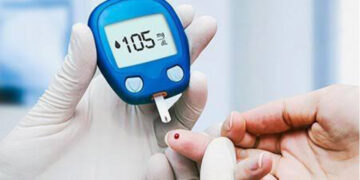A new study conducted by DGI Consults, with support from Gatefield, has revealed that inflation and rising medicine costs were putting diabetes care far beyond the reach of ordinary Nigerians.
The study findings, shared at a high-level webinar to mark World Diabetes Day 2025, showed that the average cost of treating diabetes per person has increased by over 400% due to surging inflation rates.
It noted that for the poorest Nigerians, diabetes treatment costs more than seven times what they earn as income.
The webinar, which brought together public health experts, researchers, and persons living with diabetes, examined the link between inflation, medicine affordability, and treatment adherence.
The findings also showed that the escalating cost of essential medicines has forced many patients to ration doses or stop treatment entirely — a dangerous trend contributing to the rise in diabetes-related complications and hospital emergencies.
Speaking at the webinar, Professor Felicia Anumah, endocrinologist and diabetes expert at the Yakubu Gowon University, Abuja, said, “Diabetes is an expensive disease. Patient flow has reduced at the clinic, and when we call them to find out why, they say it’s because they don’t have transport money to come to the hospital.”
Bernard Enyia, second Vice President of the Diabetes Association of Nigeria, who has been living with diabetes for over 15 years said, “I spent over N2 million in a matter of months to battle the implications of diabetes.”
Panelists at the webinar called for urgent reforms to ensure that essential medicines remain within reach for every Nigerian, regardless of income levels.
The study recommended the establishment of an Affordable Medicines Facility for Diabetes (AMFD),a proposed multi-stakeholder funding and procurement mechanism designed to reduce the retail prices of life-saving medicines such as insulin and oral anti-diabetics.
It also called for targeted subsidy schemes for low-income earners and vulnerable populations and expansion of the National Health Insurance Authority (NHIA) coverage to include all antidiabetic medicines and related laboratory services.
The study further emphasised the need for local drug manufacturing through tax incentives and low-interest financing to reduce dependence on imported pharmaceuticals.
According to Omei Bongos-Ikwue, Public Health lead at Gatefield, “the rising cost of essential medicines is a quiet public health emergency. This research shows that without decisive action, more Nigerians will be priced out of treatment.
“The proposed Affordable Medicines Facility for Diabetes offers a sustainable path forward, one that protects lives, strengthens health systems, and ensures no one has to choose between eating and staying alive.”





